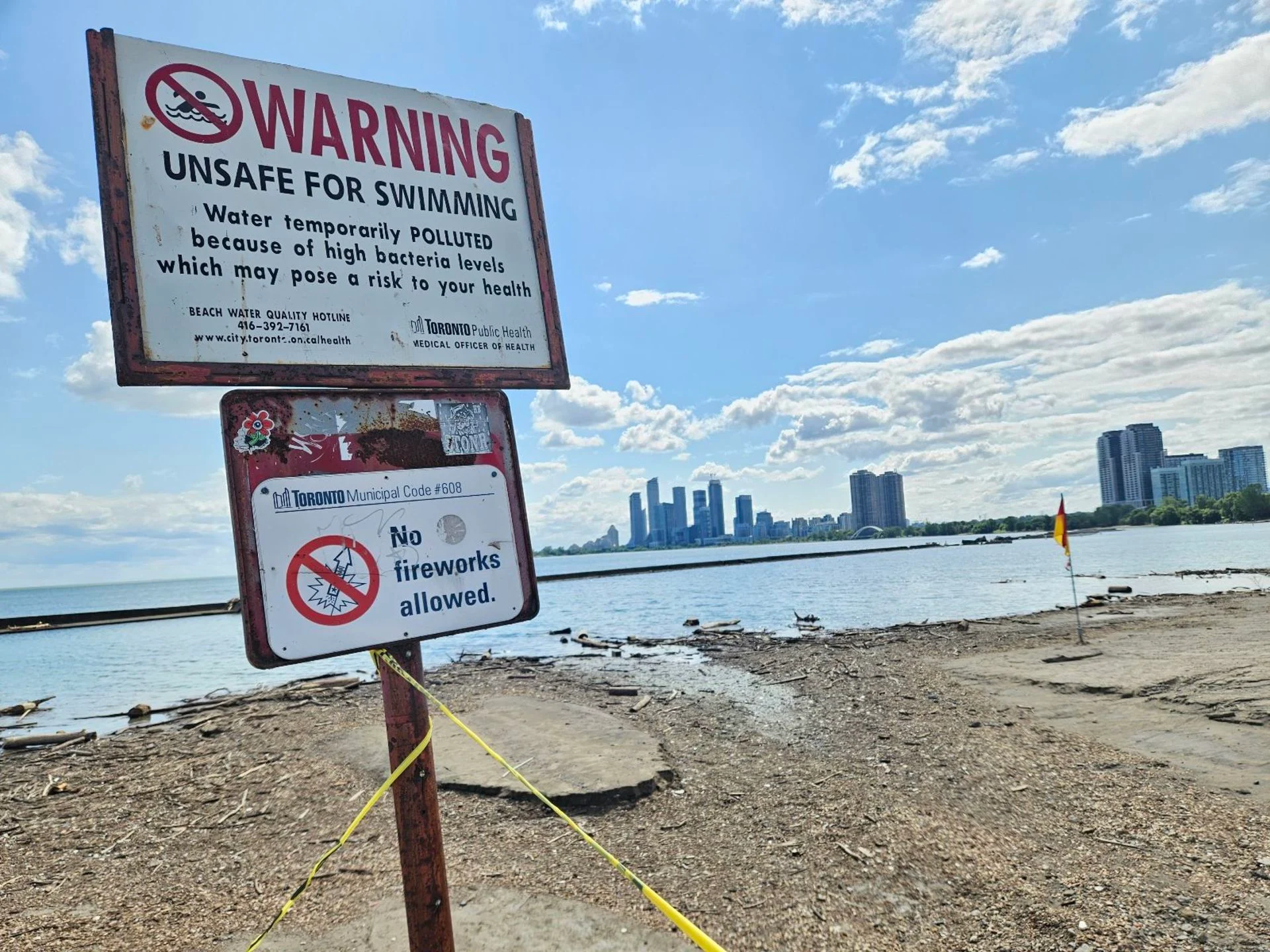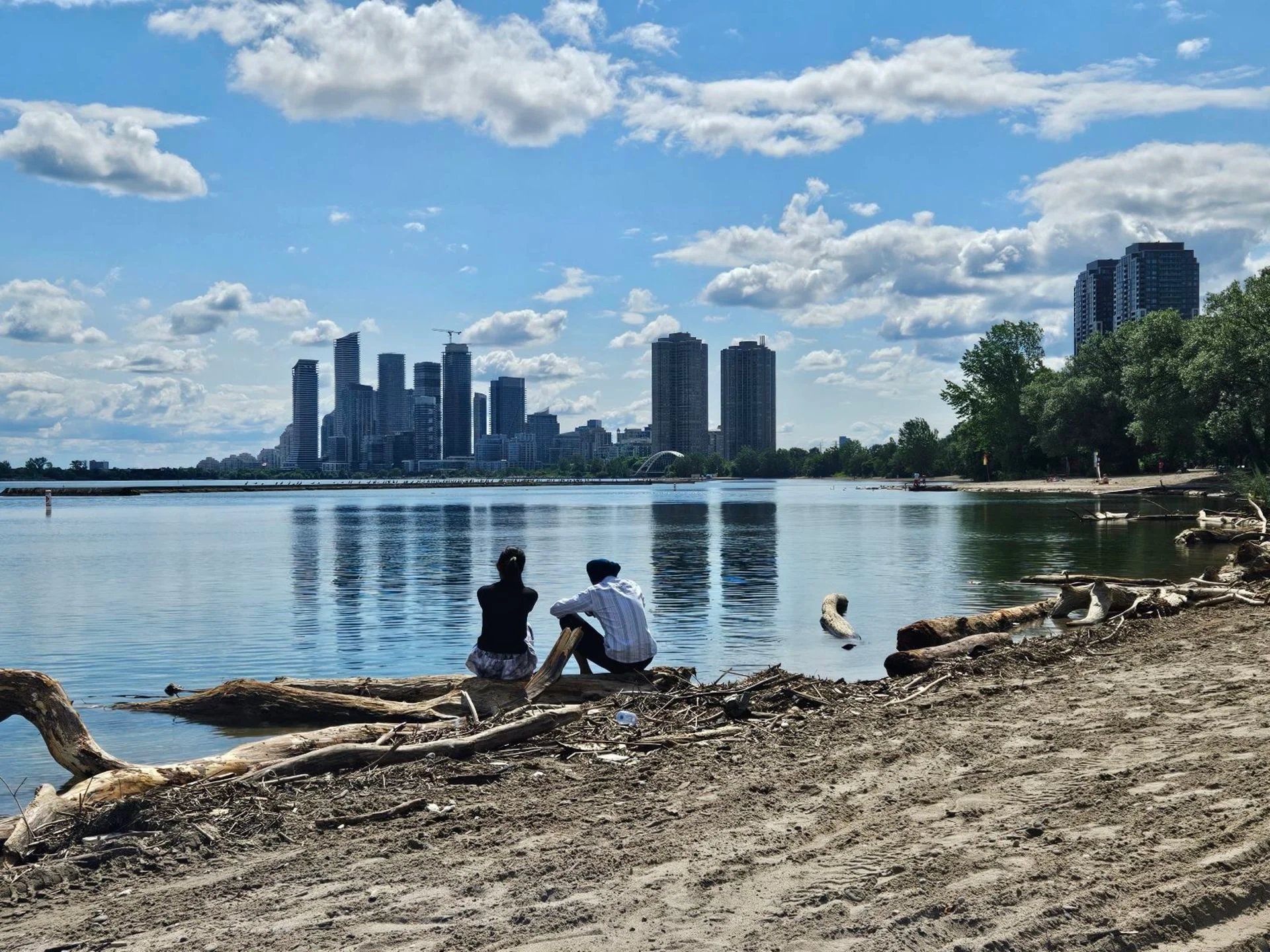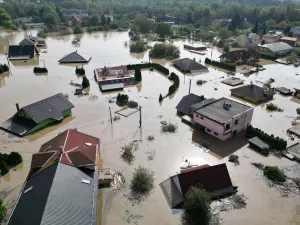
Summer reminder: It's not safe to swim at beaches after heavy rain
Bacteria following heavy rain presents health risks for beachgoers.
Tuesday's widespread storms caused localized flooding across southern Ontario, with some communities still in the midst of cleaning up.
All Toronto beaches were deemed unsafe for swimming following the storm, after the heavy rain caused the equivalent of 500 Olympic-sized swimming pools of untreated sewage to hit waterways.
This caused an E.coli spike in the water but a few hours later, some beaches were declared safe for swimming as bacteria levels dropped.
RELATED: Is your local beach safe to swim at? There's an app for that

A red flag signifying unsafe beach water quality at Toronto's Sunnyside Beach on July 18, 2024. (Michael Vann/The Weather Network)
To find out if a beach is opened or closed in Ontario, click here.
The dangers of swimming after a rain storm
Swimming up to 48 hours after rainfall presents unique health risks, according to a statement on the City of Toronto's website.
Bacteria from stormwater runoff, litter, and other debris is often present in high levels in the hours following a storm. Even designated swim areas are vulnerable.

Sunnyside Beach failed to meet water quality standards following heavy rainfall on in Toronto on July 16, 2024. (Michael Vann/The Weather Network)
Risk-assessment
"If you see lots of discolouration in the water, lots of leaves and plastic bottles floating around, then that's a pretty good indication that there's stormwater," Dr. Stuart Khan, a water quality expert at Australia's University of NSW, told ABC Radio Sydney in 2018.
"Where there's stormwater, there's bacteria. In other cases, stormwater can look fairly clean and still have a very high pathogen and bacteria load. I'd be looking at rainfall as my key indicator [for contamination] more so than trying to measure water quality directly."
There's no one-stop shop to check water quality at a given beach. Health Canada works with provinces and territories to establish guidelines, and municipalities oversee water management at recreational swim spaces within their jurisdictions. It's always best to check with the municipality you plan to visit ahead of time.
Experts recommend sticking to designated swim areas that are monitored and tested for water quality.
WATCH BELOW: Heading to the beach? Here's how to find out if it's safe to swim
Header image: Taken at Toronto's Sunnyside Beach on July 18, 2024 (Michael Vann for The Weather Network).










